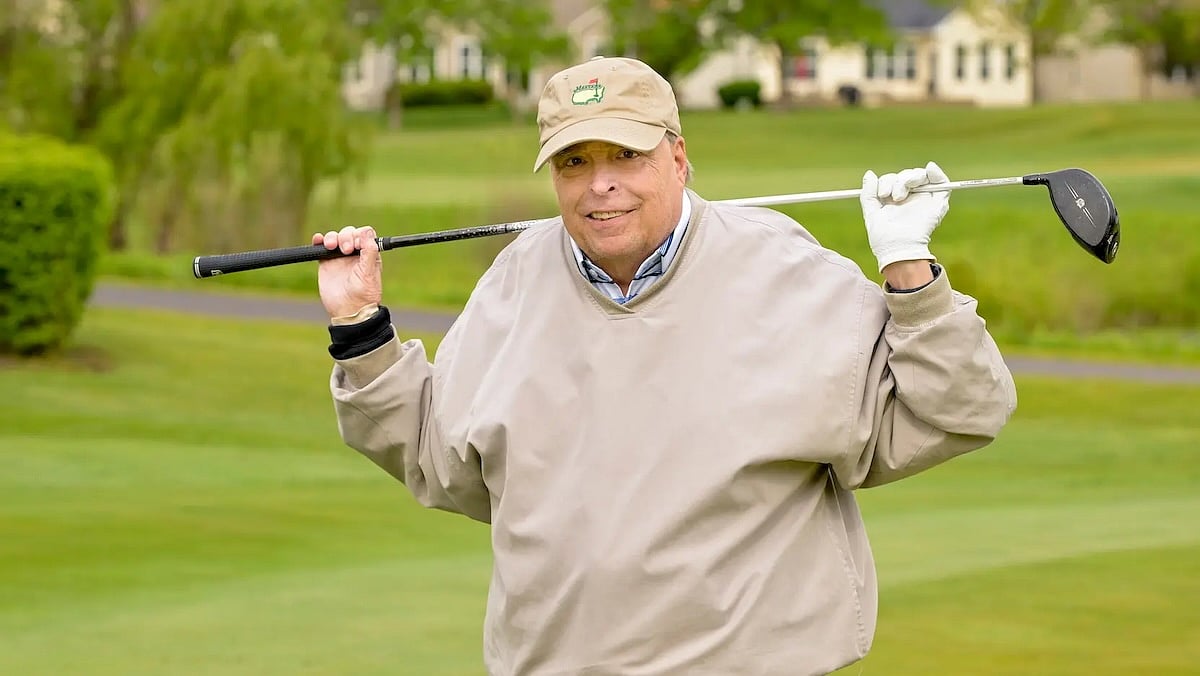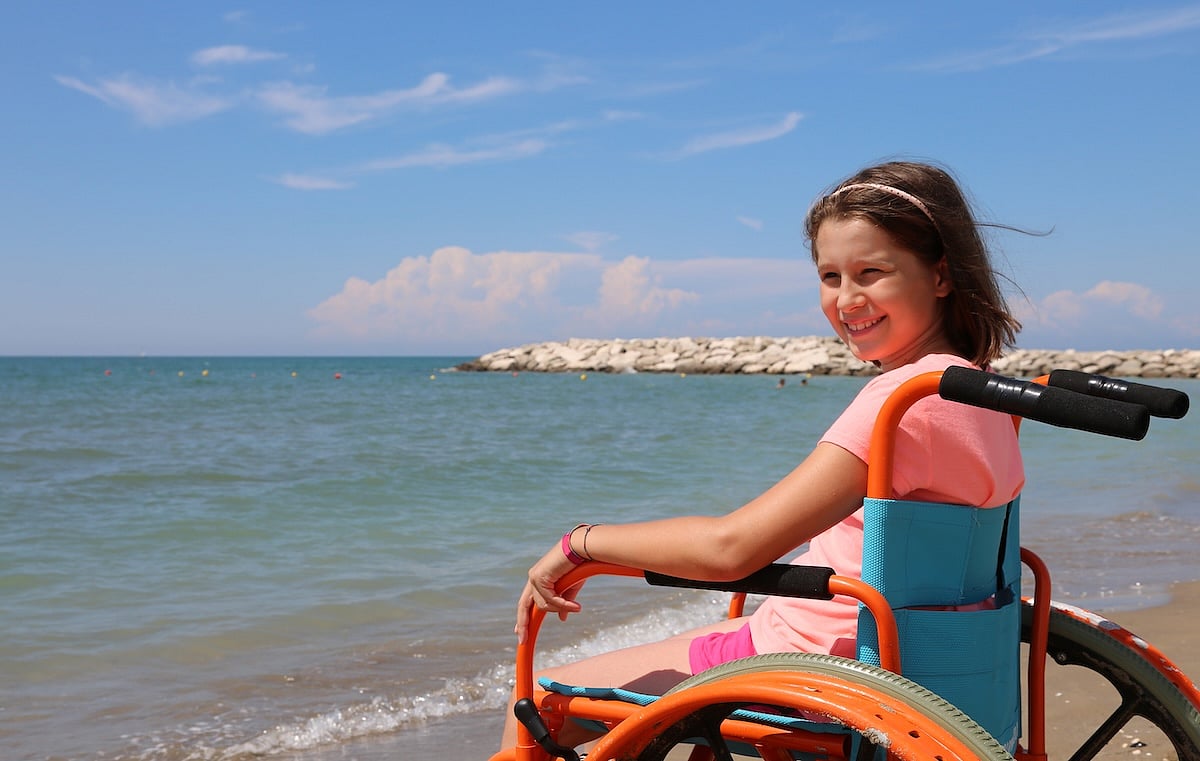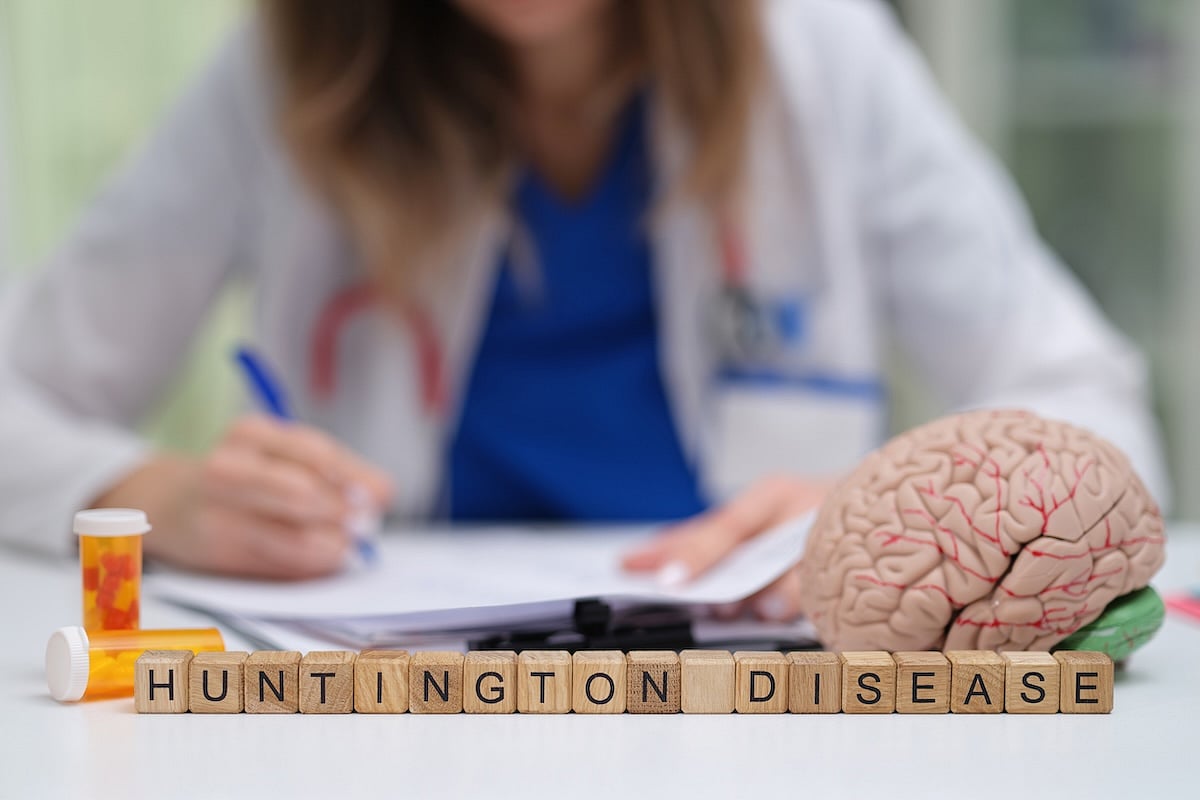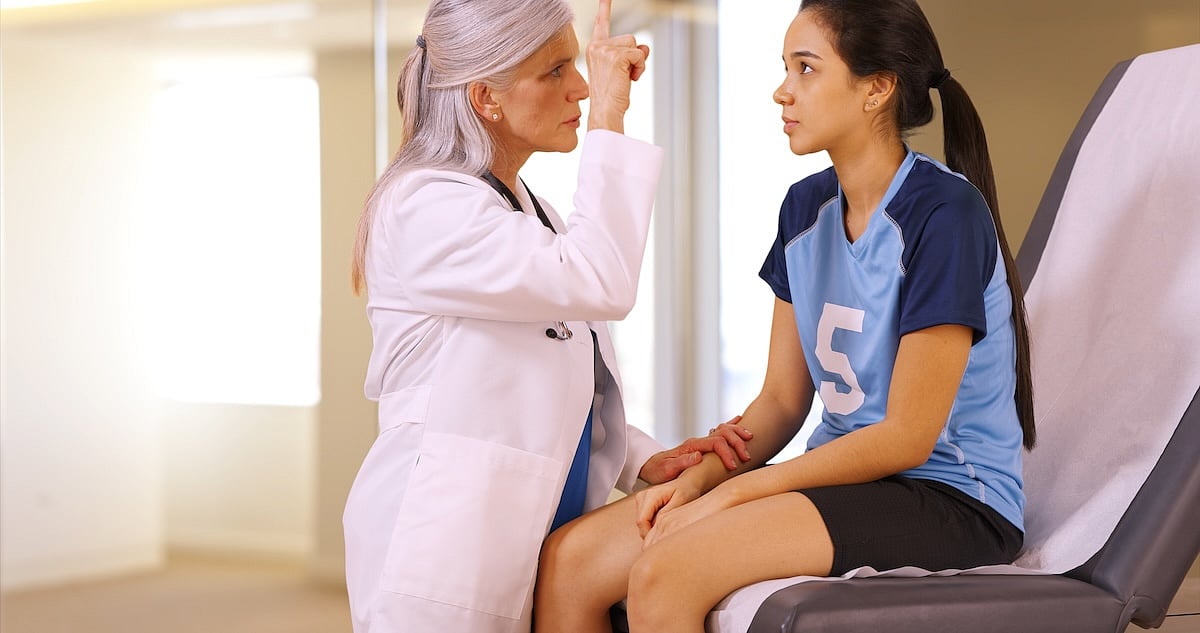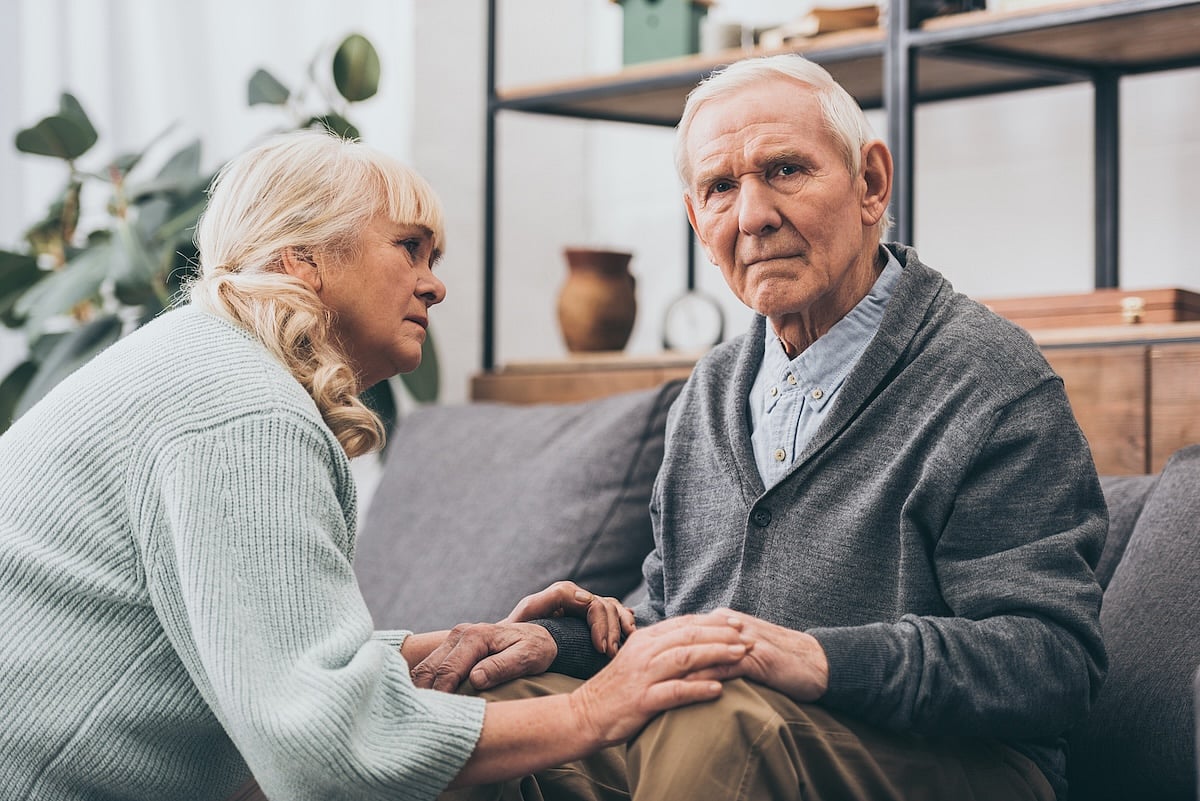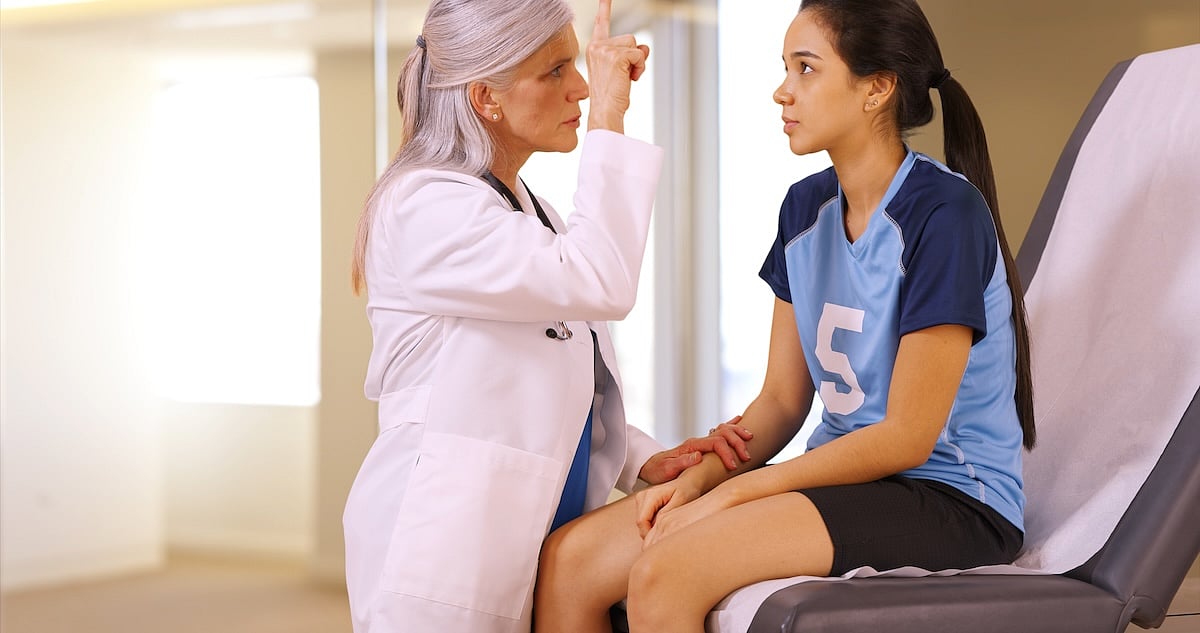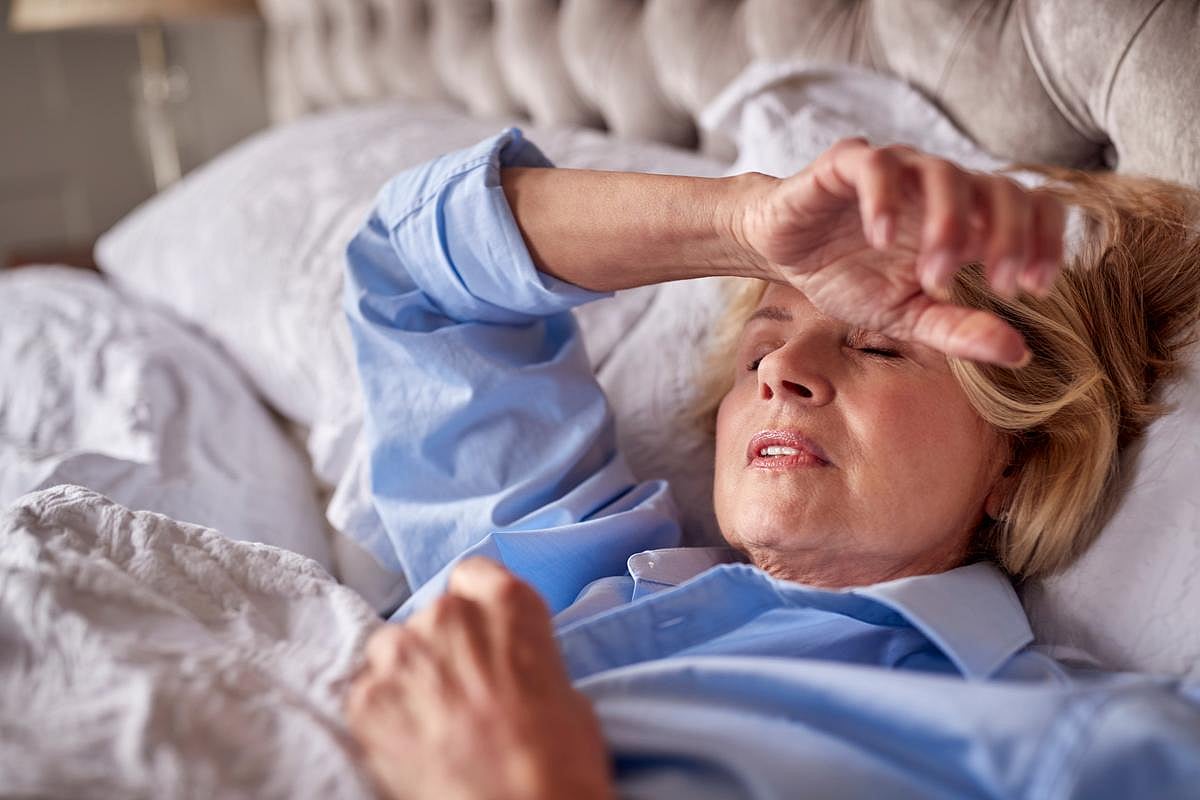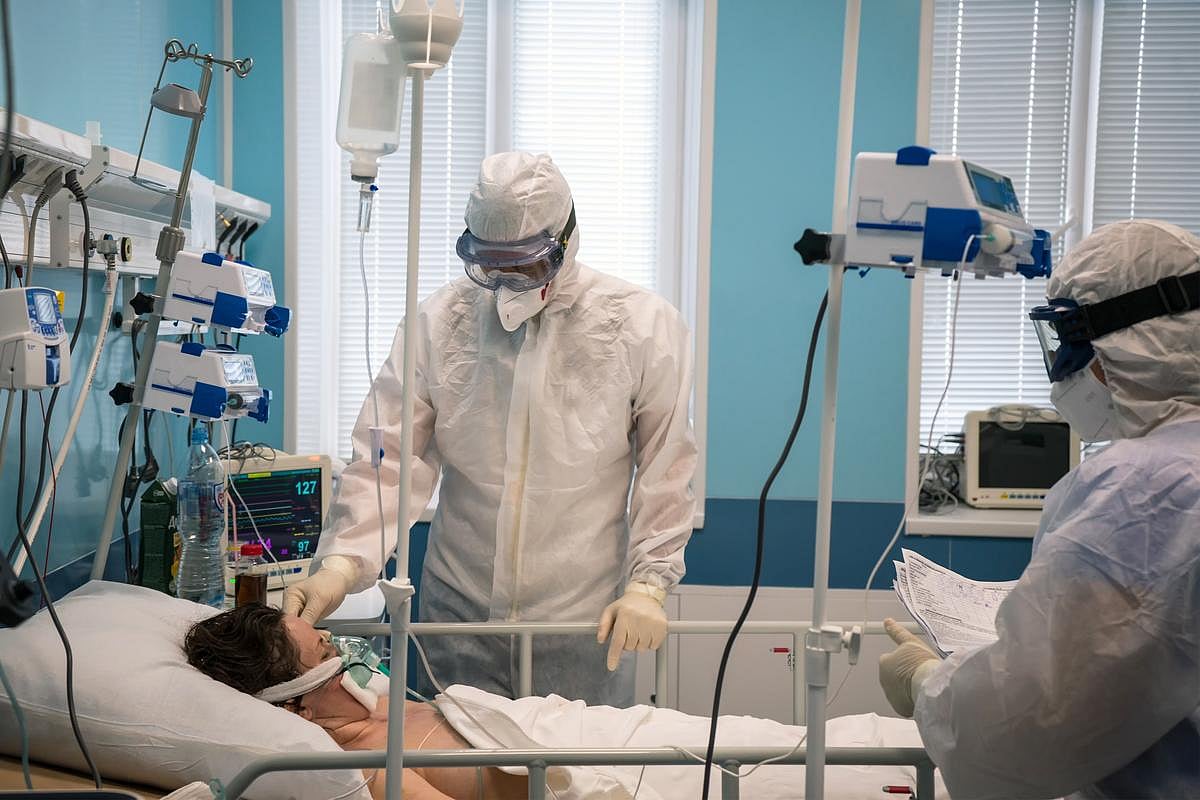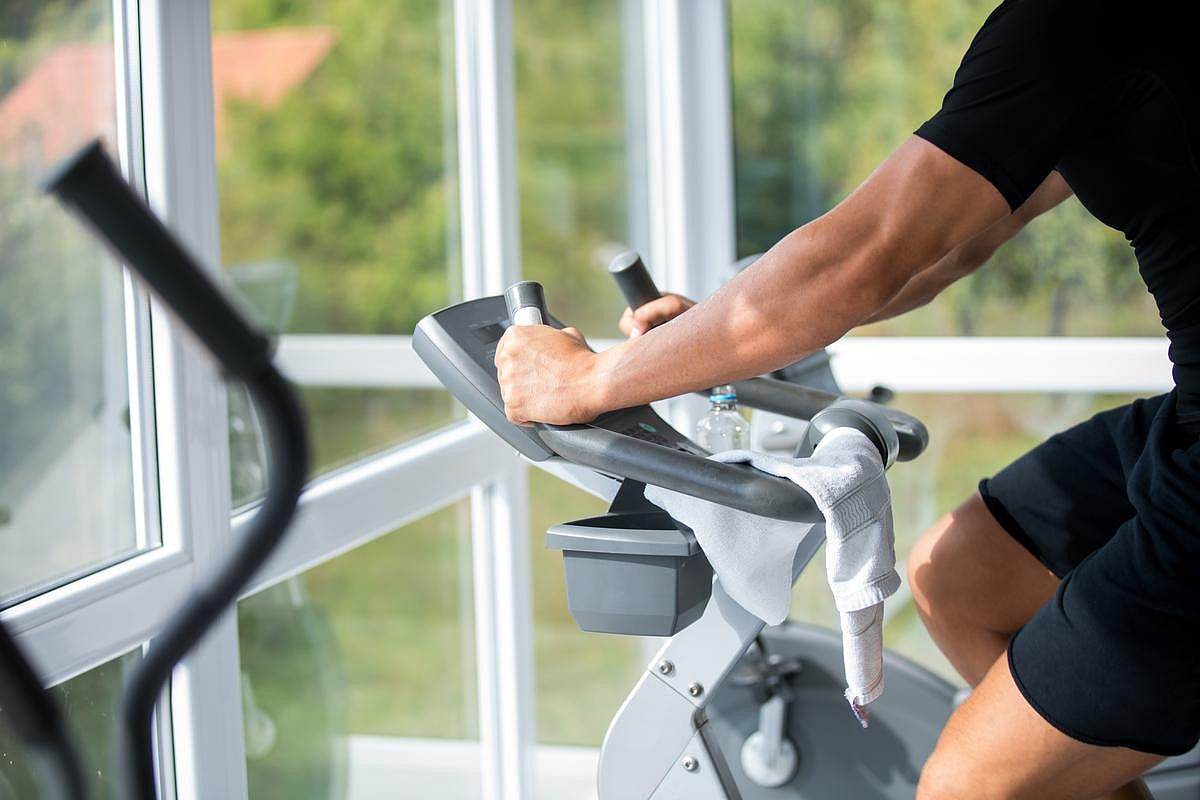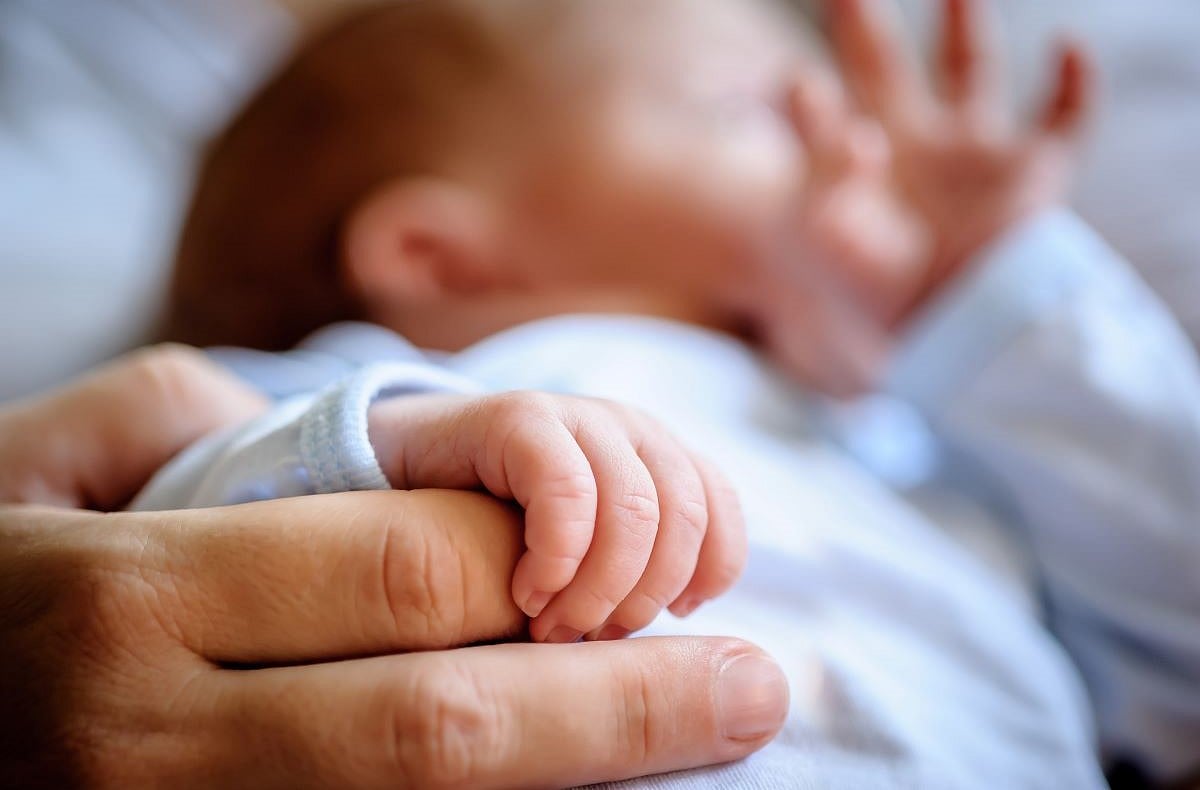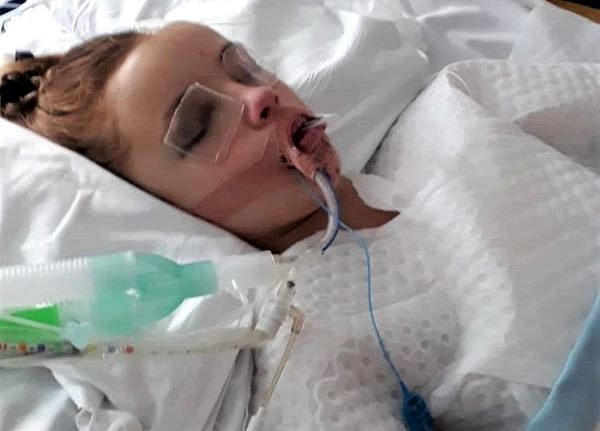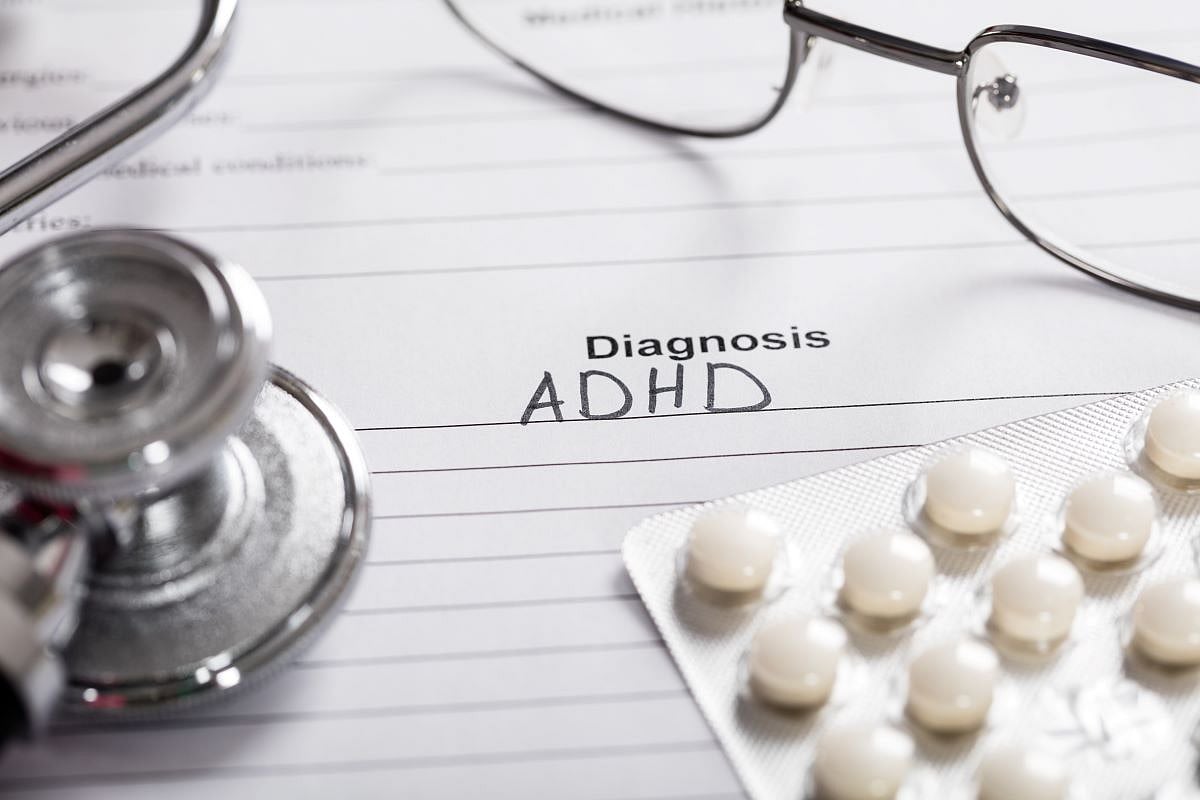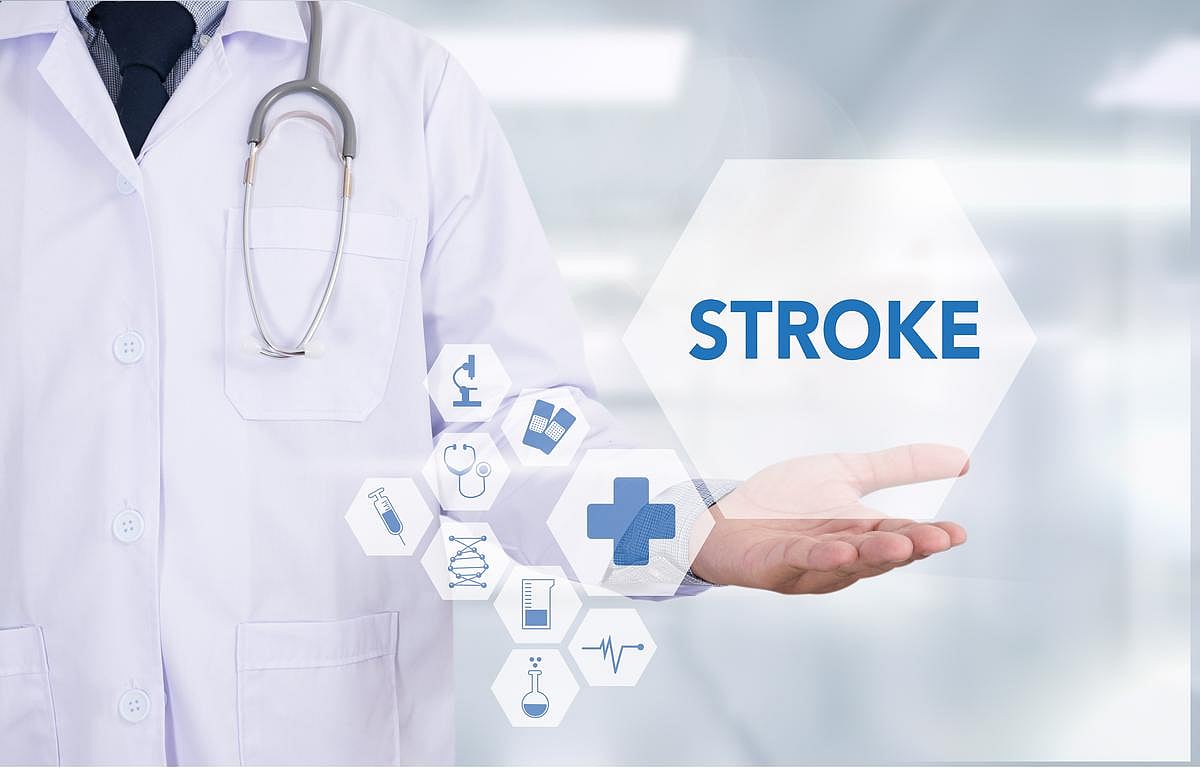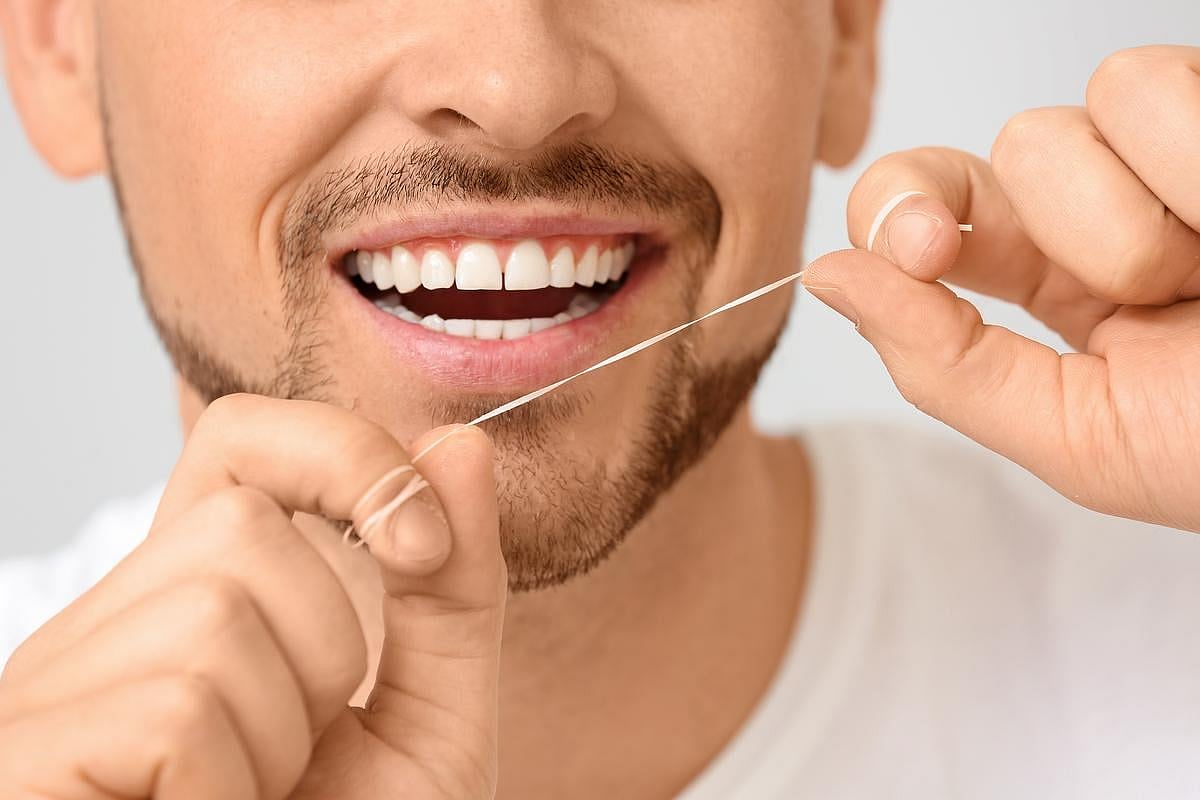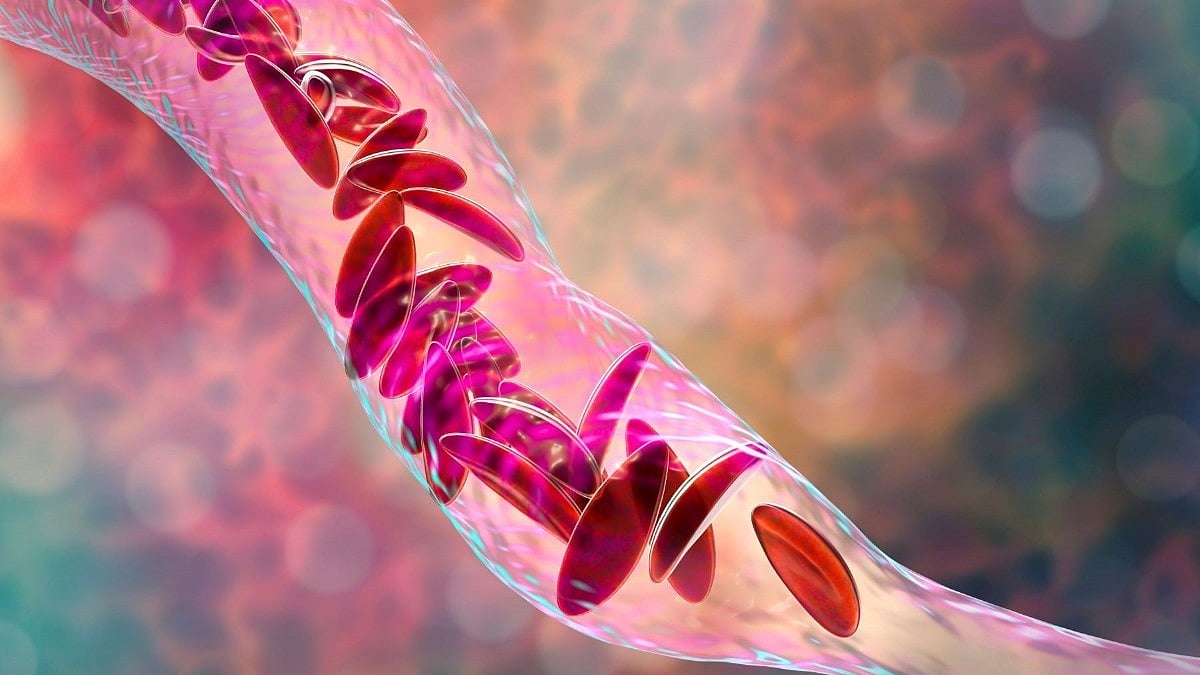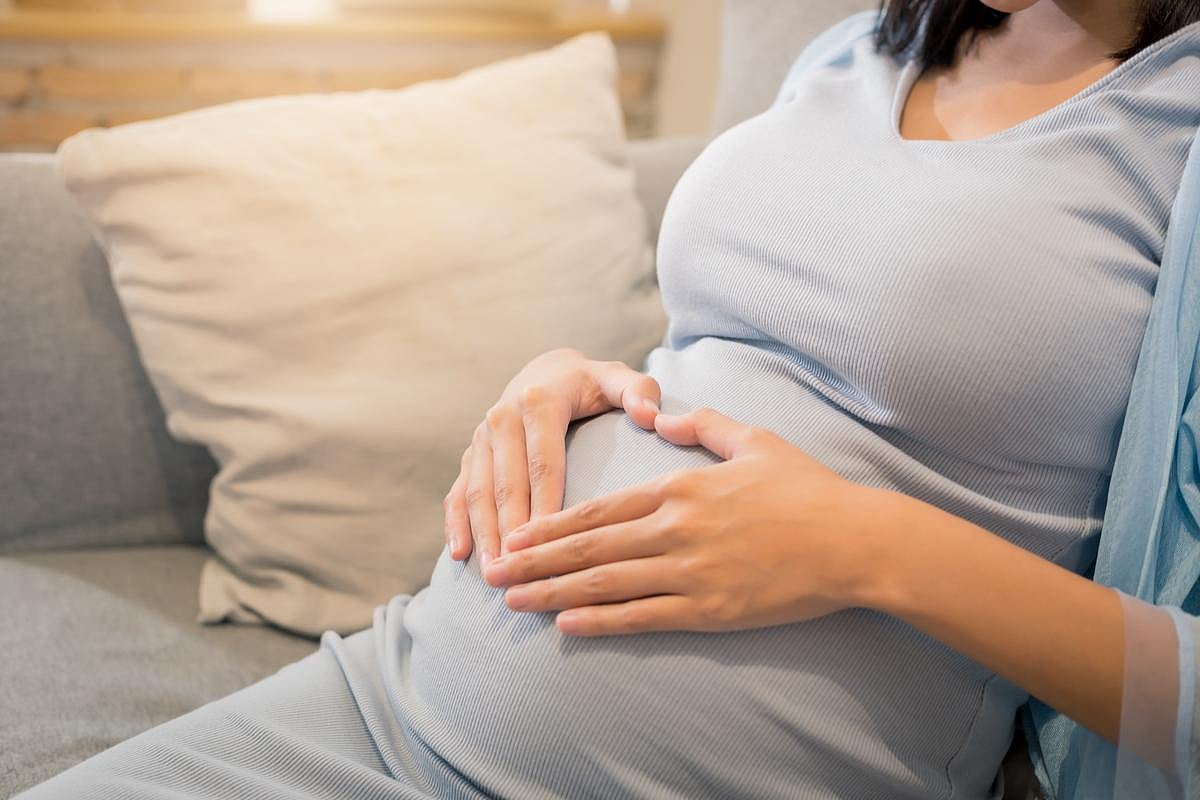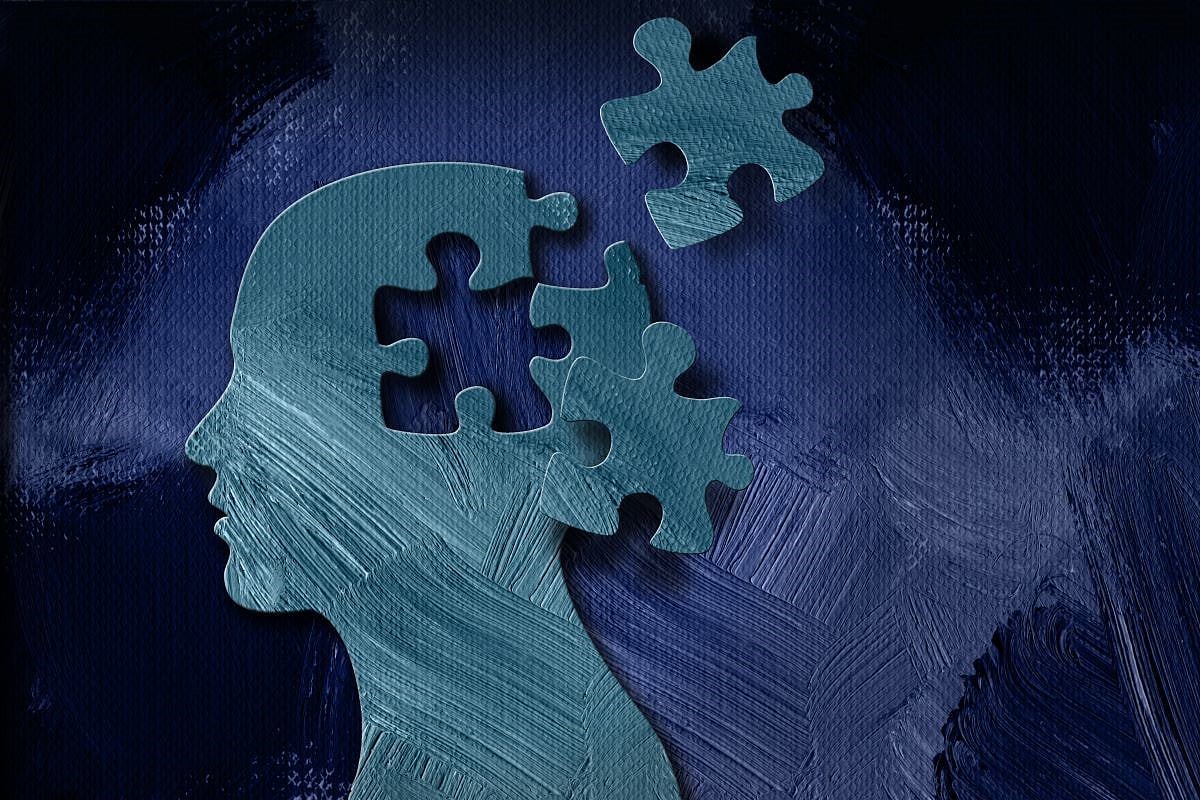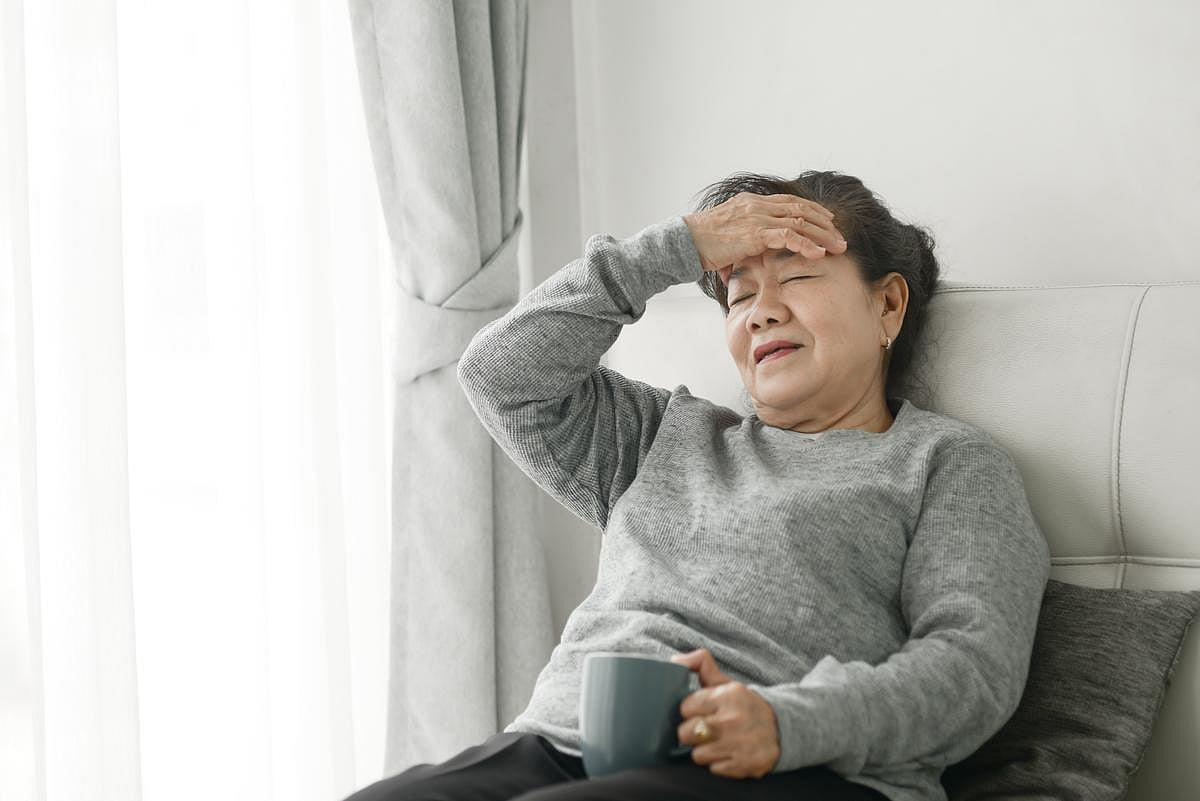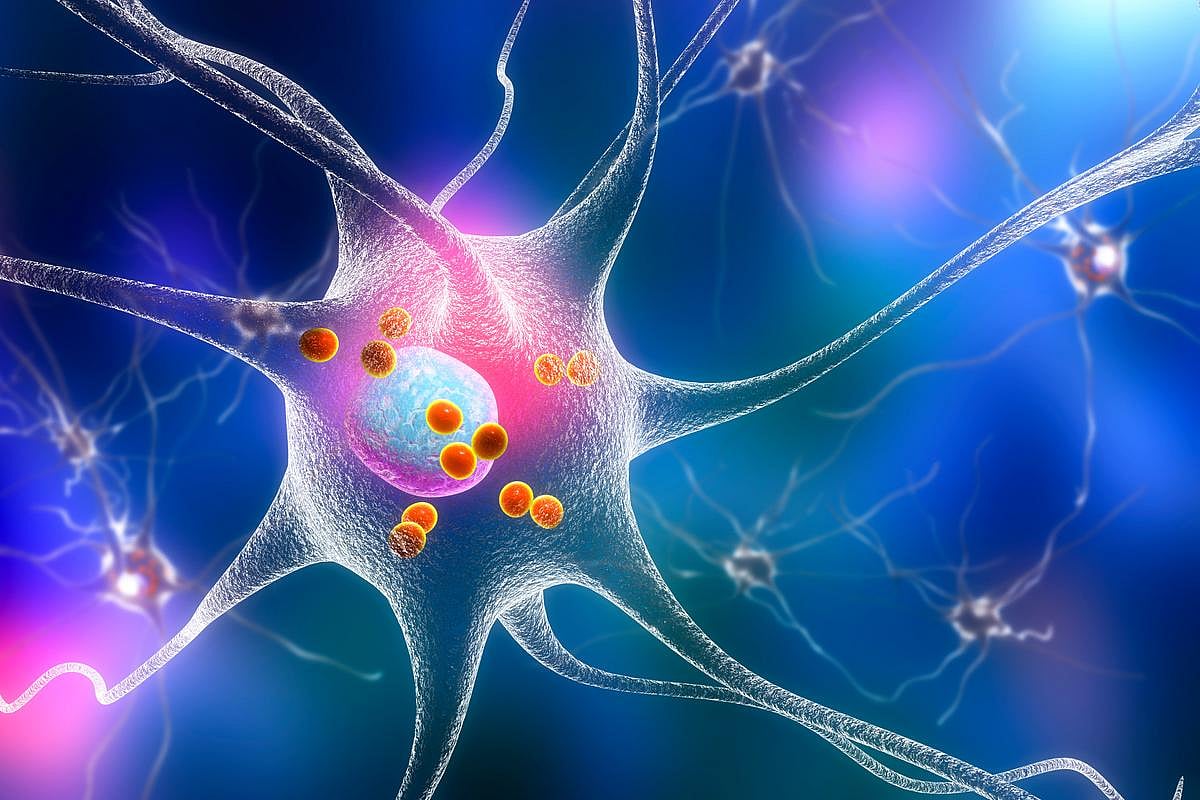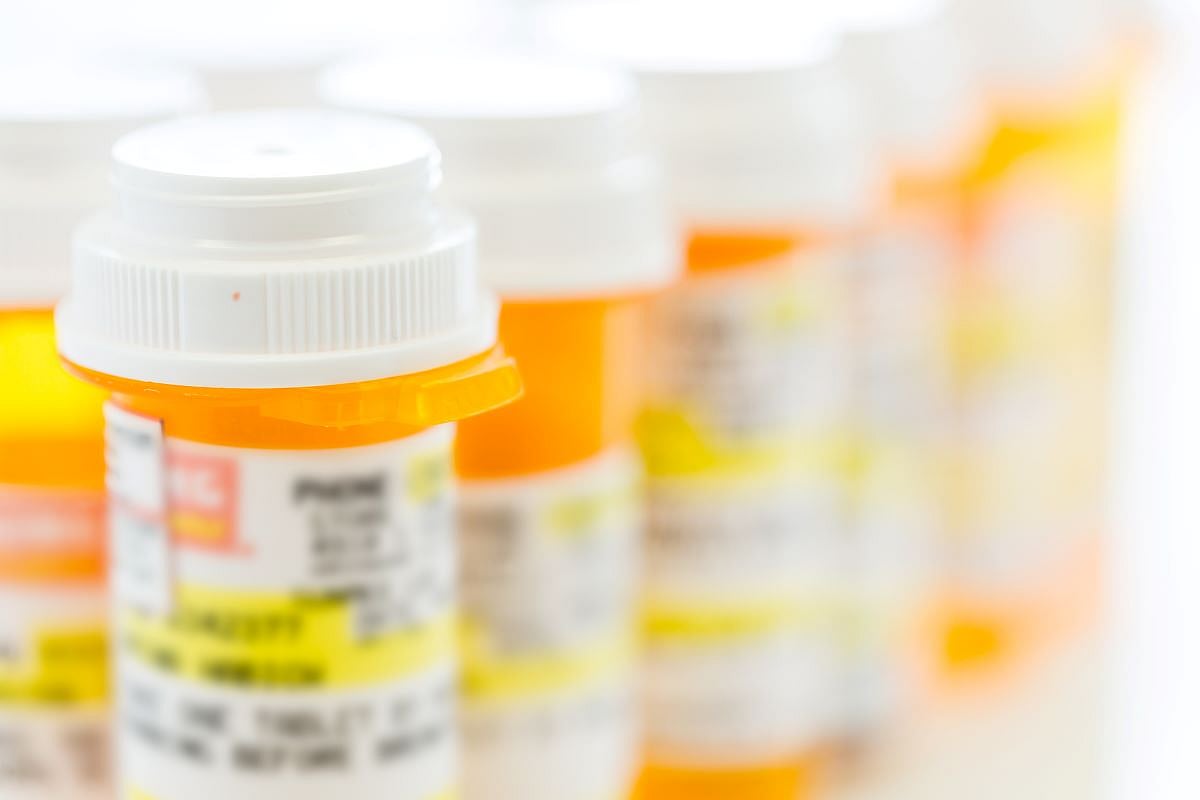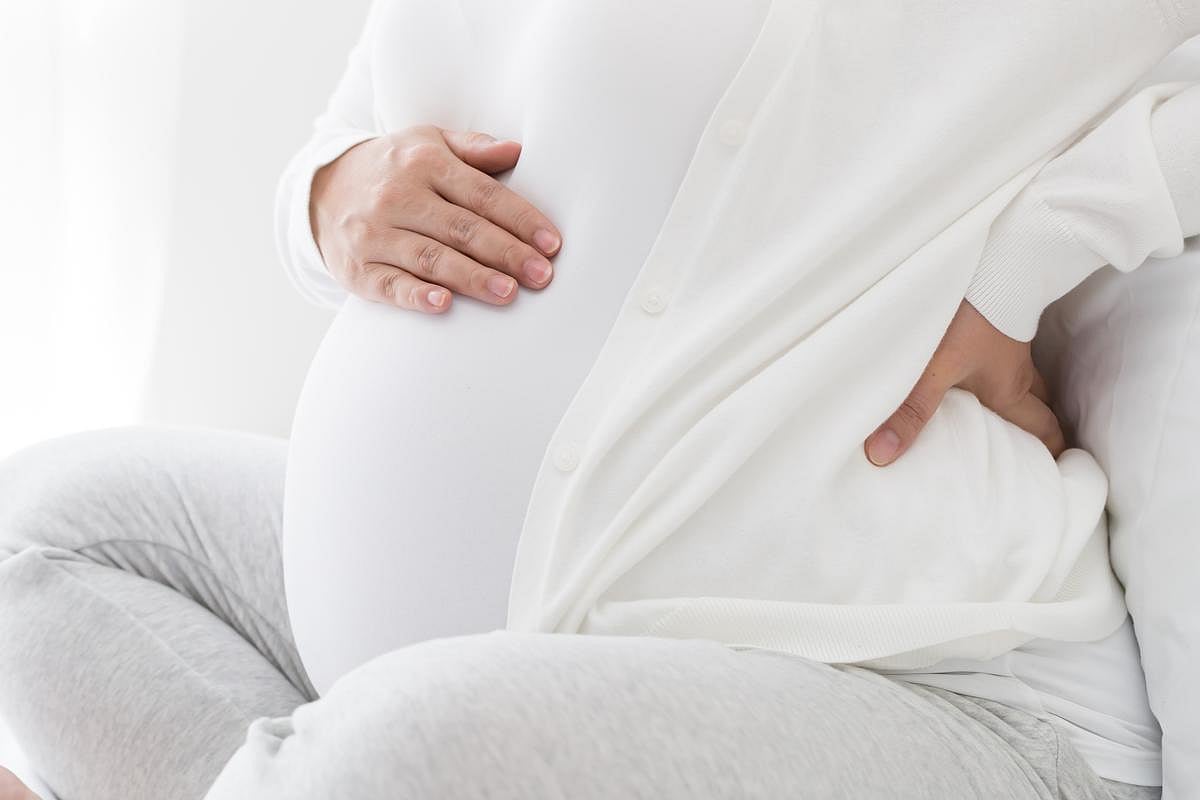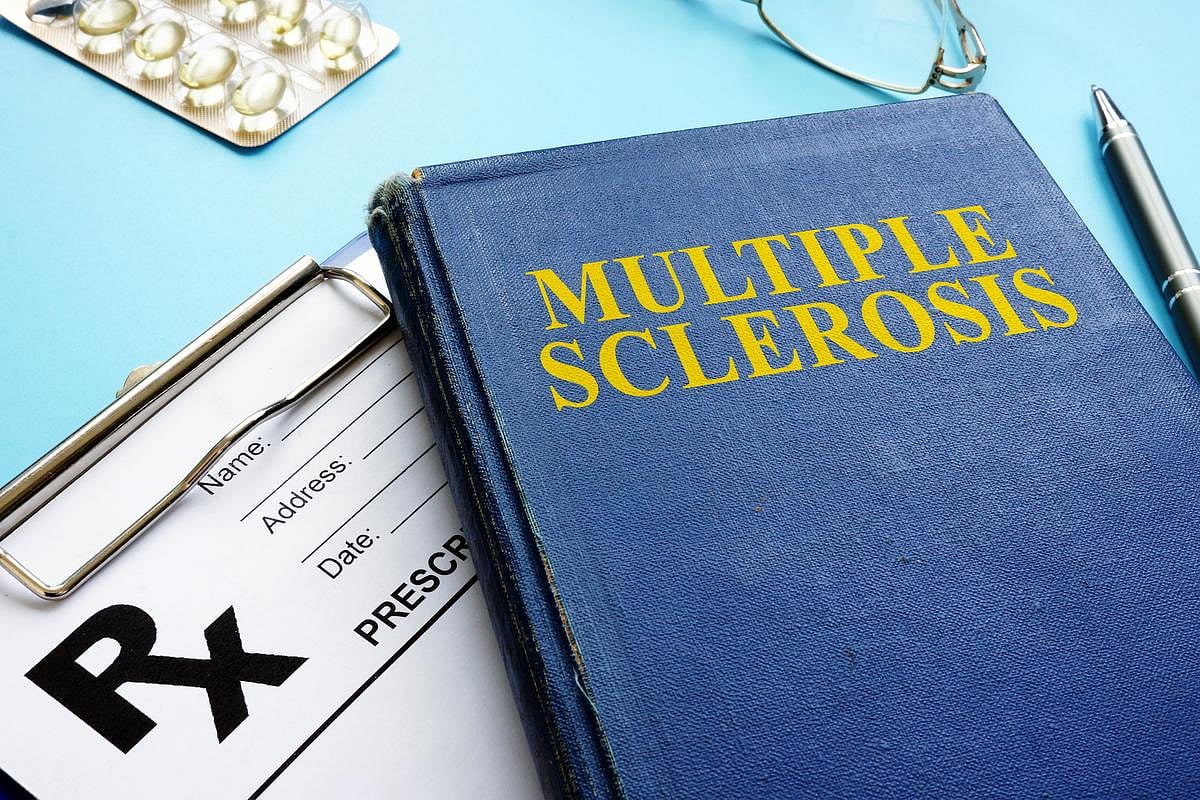Get Healthy!
Results for search "Neurology".
05 Mar
Sleep Apnea May Increase the Risk of Parkinson’s Disease, Preliminary New Study Finds
Patients with obstructive sleep apnea may have higher odds of developing Parkinson’s disease, but researchers say early CPAP treatment may lower the risk.
20 Aug
Scrolling Through Online Videos Only Makes Boredom Worse
People who quickly swipe through online videos end up more bored and less satisfied than those who concentrate on the content, new study finds.
Health News Results - 654
Avid golfer Robert Knorr found he was no longer able to hit the links last year, due to neuropathy in his legs and feet.
The nerve pain got so bad that Knorr needed a cane — and sometimes a wheelchair — to get around.
But the 69-year-old retired oil company executive has traded that cane for his golf clubs, thanks to...
- Dennis Thompson HealthDay Reporter
- |
- July 3, 2025
- |
- Full Page
Your address might influence your risk for dementia, a new study says.
People living in poor neighborhoods appear to be more likely to have biological risk factors for inflammation and Alzheimer’s disease, researchers reported June 25 in the jour...
- Dennis Thompson HealthDay Reporter
- |
- June 30, 2025
- |
- Full Page
Kids with multiple sclerosis (MS) age at an accelerated rate as the disease causes advanced wear and tear on their bodies, a new study says.
This accelerated aging extends into their teenage years, increasing their odds that MS-related disability and chronic disease will occur earlier in their lives, researchers reported June 9 in the journal
Brain changes in sleepless teens could make them more likely to be impulsive and aggressive, a new study says.
Teenagers with less sleep had lower connectivity between the parts of the brain that play a critical role in decision making, self-reflection and information processing, researchers reported June 13 in the journal
Most folks tap away at their smartphone for fun, communication or information.
But such tapping may also help them track the progress of a rare degenerative brain disease, researchers say.
Five simple smartphone-measured tests of movement control can provide quick and regular insight into the motor function of someone with Huntington’s disease, researchers reported June 9 in t...
- Dennis Thompson HealthDay Reporter
- |
- June 12, 2025
- |
- Full Page
Heart disease, strokes and diabetes contribute to many dementia cases in the United States, but the risk is not equal everywhere, a new study says.
Overall, more than a third (37%) of U.S. dementia cases are linked to eight conditions: diabetes, heart failure, atrial fibril...
- Dennis Thompson HealthDay Reporter
- |
- May 29, 2025
- |
- Full Page
A brain wave decoder shows promise in using electrical stimulation to the spine to cue leg movement, researchers say.
The decoder could one day help restore mobility in people with spinal cord injuries.
Tests in 17 people without a spinal cord injury showed that the decoder could cue movement in their lower legs using spinal cord stimulation, researchers reported in the
- Dennis Thompson HealthDay Reporter
- |
- May 20, 2025
- |
- Full Page
Knowing your risk for Alzheimer’s disease can provide peace of mind, but also might contribute to complacency regarding your overall health, a new study says.
People who underwent brain scans to learn their Alzheimer’s risk experienced less...
- Dennis Thompson HealthDay Reporter
- |
- May 8, 2025
- |
- Full Page
Sleep apnea could be costing you brain power and increasing your risk of dementia and Alzheimer’s disease, a new study...
- Dennis Thompson HealthDay Reporter
- |
- May 8, 2025
- |
- Full Page
High school athletes with ADHD take longer to recover from a sport-related concussion, a new study says.
Those with a concussion took about 16% longer to return to the classroom and 17% longer to return to sports, compared to athletes without ADHD, researche...
- Dennis Thompson HealthDay Reporter
- |
- May 1, 2025
- |
- Full Page
THURSDAY, April 10, 2025 (HealthDay News) -- Having a father with Alzheimer’s disease could put you at risk for brain changes linked to the degenerative disorder, a new study says.
People whose fathers fell prey to Alzheimer’s had a greater spread of tau proteins in their brain, according to findings published in the journal
The first sign of seizures for Amanda Bradbury were auras in her vision that cropped up around age 19.
Then came frequent bouts of anxiety, struggling to maintain focus and follow conversations, forgetting things, and having difficulty speaking or even swallowing.
“One of the things that would happen before a seizure is I'd get an intense feeling of fear, which I now realize w...
- Dennis Thompson HealthDay Reporter
- |
- March 26, 2025
- |
- Full Page
A muscle-stimulating implant combined with a robotic exoskeleton can help restore movement in people paralyzed by a spinal cord injury, a new study says.
The spinal cord implant delivers well-timed electrical pulses to muscles, stimulating natural muscle activity coordinated with supportive robotic movements, researchers reported March 12 in the journal
Concussion damage could linger in an athlete’s brain for at least a year, long after they’ve rejoined their sport, a new study says.
Concussed college athletes had brain changes that remained visible in brain scans up to a year afte...
- Dennis Thompson HealthDay Reporter
- |
- March 13, 2025
- |
- Full Page
Sleep is a critical component for concussion recovery among kids, a new study reports.
Limiting naps during the day and getting about seven hours of sleep each night in the first week after a concussion appears to speed up recuperation, researc...
- Dennis Thompson HealthDay Reporter
- |
- March 11, 2025
- |
- Full Page
The number of people with Parkinson’s disease will more than double by 2050, driven by the aging of the global population, a new study suggests.
In all, 25.2 million people will be living with Parkinson’s by 2050, researchers project in The BMJ.
“An urgent need exists for future research to focu...
- Dennis Thompson HealthDay Reporter
- |
- March 7, 2025
- |
- Full Page
Hot flashes, night sweats and other symptoms of a difficult menopause could be early warning flags for dementia, a new study suggests.
Women who exhibit more menopause symptoms are more likely to develop early signs of dementia like decreased mental function and mil...
- Dennis Thompson HealthDay Reporter
- |
- March 6, 2025
- |
- Full Page
FRIDAY, Feb. 28, 2025 (HealthDay News) People hospitalized for a severe bout of COVID-19 are far from in the clear after they've recovered enough to return home, a new study says.
COVID hospital patients have an increased risk of death from any cause for at least two and a half years following their ...
- Dennis Thompson HealthDay Reporter
- |
- February 28, 2025
- |
- Full Page
Moving your body helps your brain, a new study suggests.
Folks who regularly exercise have better mental and brain health, researchers will report in early April at the annual meeting of the American Academy of Neurology in San Diego and online.
Moderate to vigorous physical activity reduces risk of dementia, s...
- Dennis Thompson HealthDay Reporter
- |
- February 28, 2025
- |
- Full Page
A blood test can help doctors detect ALS, or amyotrophic lateral sclerosis, and predict how the degenerative disease will progress in patients, a new study suggests.
People with ALS have three times higher blood levels of neurofilament light chain proteins, which are produced when nerve cells are injured or die, than people with other brain diseases, researchers reported Feb. 26 in the jo...
- Dennis Thompson HealthDay Reporter
- |
- February 27, 2025
- |
- Full Page
Artificial intelligence (AI) might help treat childhood epilepsy by detecting brain abnormalities that are causing kids’ seizures, a new study suggests.
The AI tool, called MELD Graph, found 64% of brain lesions linked to epilepsy that human radiologists had previously missed, researchers report in JAMA...
- Dennis Thompson HealthDay Reporter
- |
- February 27, 2025
- |
- Full Page
A baby’s seizure in a neonatal ICU could be a red flag for future risk of epilepsy.
Newborns who suffer seizures following birth are more likely to develop epilepsy in childhood and young adulthood, a
Mia Jack was stealing a glance backward when she lost control of the quadbike she’d been motoring around a family gathering.
Jack, then 12, flew over the handlebars and slammed headfirst into a tree.
“I was wearing a helmet at the time, but apparently my brain was like a jelly in a box that had been really badly shaken, and I was going to be in hospital for some ti...
- Dennis Thompson HealthDay Reporter
- |
- February 20, 2025
- |
- Full Page
From Mariah Carey and Jimi Hendrix to Michael Jackson, Ella Fitzgerald and Bing Crosby, a select group of famous musicians past and present have had have perfect pitch.
Now, a new study suggests that you can, too -- with proper training.
Absolute or perfect pitch is the ability to identify&nbs...
- Denise Mann HealthDay Reporter
- |
- February 18, 2025
- |
- Full Page
A simple acronym -- F.A.S.T. -- can help bystanders recognize the first signs of stroke and call 911 right away, a new study says.
Both F.A.S.T and another acronym, BE-FAST, helped people remember the symptoms of stroke, according to findings to be presented Wednesday at a meeting of the American Stroke Associati...
- Dennis Thompson HealthDay Reporter
- |
- February 3, 2025
- |
- Full Page
A rapid blood test could speed treatment for people who’ve suffered a stroke related to brain bleeding, a new study says.
Stroke victims with brain bleeds have nearly seven times higher blood levels of a brain protein called glial fibrillary acidic protein, or GFAP, compared to patients with
Flossing protects your brain as well as your gums, a new study suggests.
People who floss their teeth at least once a week are reducing their risk of stroke caused by a blood clot, researchers are scheduled to report Wednesday at a meeting of the American Stroke Association in Los Angeles.
Flossing is assoc...
- Dennis Thompson HealthDay Reporter
- |
- January 31, 2025
- |
- Full Page
Four in every 10 cancer patients treated with chemotherapy develop severe peripheral nerve pain, a new evidence review suggests.
These patients might experience loss of balance and coordination, weakness or sensations of numbness, tingling, “pins and needles,” or burning, researchers ...
- Dennis Thompson HealthDay Reporter
- |
- January 29, 2025
- |
- Full Page
Delays in dreaming might be an early warning sign of Alzheimer’s disease.
People who take significantly longer to enter the rapid eye movement (REM) phase of sleep could be experiencing an early symptom of Alzheimer’s, researchers reported ...
- Dennis Thompson HealthDay Reporter
- |
- January 28, 2025
- |
- Full Page
People with sickle cell disease often struggle with memory, focus, learning and problem solving, setting them back in school and the workplace.
That could be because their brains are older than expected for their age, a new study published recently in JAMA Network Open says.
Brain scans revea...
- Dennis Thompson HealthDay Reporter
- |
- January 24, 2025
- |
- Full Page
Pregnancy increases the risk of mental illness among women with multiple sclerosis (MS).
Pregnant MS patients have a higher risk of mental illness both during gestation and in the first years after they give birth, researchers reported in a new study published Jan. 22 in the journal Neurology.
Ove...
- Dennis Thompson HealthDay Reporter
- |
- January 23, 2025
- |
- Full Page
Preventing or treating infections could be a key means of warding off dementia, a new evidence review says.
Vaccines, antibiotics, antiviral medications and anti-inflammatory drugs are all associated with a reduced risk of dementia, researchers reported in a study published Jan. 21 i...
- Dennis Thompson HealthDay Reporter
- |
- January 23, 2025
- |
- Full Page
Many elderly people and their caregivers don’t know a doctor has diagnosed them with dementia.
More than three-quarters of patients with dementia were not aware of their diagnosis, according to results recently published in the Journal of General Internal Medicine.
It’s not because the pe...
- Dennis Thompson HealthDay Reporter
- |
- January 21, 2025
- |
- Full Page
Tourette syndrome is not being diagnosed promptly in women with the condition.
Women with Tourette syndrome are less likely to receive a diagnosis for the disorder, researchers reported in a study published Jan. 15 in the journal Neurology.
They also take longer to be diagnosed with the disorder, and t...
- Dennis Thompson HealthDay Reporter
- |
- January 17, 2025
- |
- Full Page
How warm or cold a home is kept could have a direct impact on the brain health of seniors.
Seniors are best able to think and maintain attention when a home is kept between 68 and 75 degrees Fahrenheit, researchers reported in a study published recently in the Journal of Gerontology: Medical Sciences.
The likelihood th...
- Dennis Thompson HealthDay Reporter
- |
- January 16, 2025
- |
- Full Page
Tree-lined streets and lush public parks appear to provide city schoolkids a brain boost.
Chicago students’ test scores suffered when an invasive insect wiped out half the city’s ash trees, researchers reported in the journal Global...
- Dennis Thompson HealthDay Reporter
- |
- January 2, 2025
- |
- Full Page
Virtual reality headsets like the Meta Quest or Apple Vision Pro will be a Christmas gift in more than one home this year.
Now mice are getting in on the action.
Researchers have developed a set of VR goggles for lab mice for use in brain studies, according to a report published recently in the journal Nature Methods
- Dennis Thompson HealthDay Reporter
- |
- December 26, 2024
- |
- Full Page
Parkinson's is a relentless disease for which few treatments, and no real cure, exists.
Now, researchers say they are on the trail of a potential new therapy for the disabling neurological illness.
It's early research, still in the animal-testing stage, as explained by investigators at the University of Arizona in Tucson. However, their findings, published recently in the journal <...
- Ernie Mundell HealthDay Reporter
- |
- December 19, 2024
- |
- Full Page
Taxi and ambulance drivers need to have quick wits and nimble reflexes to cut through traffic effectively.
Turns out that these traits might also protect them from Alzheimer’s disease, according to a new study published Dec. 16 in the
- Dennis Thompson HealthDay Reporter
- |
- December 17, 2024
- |
- Full Page
Keeping your blood pressure in check is important for more than just heart health -- it can also keep your brain sharp as you age.
A new study published Dec. 11 in the journal Neurology shows that seniors whose blood pressure spikes and drops over time might be more likely to suffer a decline in their thinki...
- Dennis Thompson HealthDay Reporter
- |
- December 12, 2024
- |
- Full Page
For children genetically predisposed to develop multiple sclerosis (MS), exposure to cigarette smoke in the family home could raise that risk even higher, new research shows.
"A higher genetic MS risk is associated with an increased vulnerability to the negative effects of household smoking on brain development," conclude a Dutch team led by
Some people develop epilepsy after surviving a stroke, as the injury they’ve sustained causes scarring and disorganized electrical activity in their brains.
But one type of blood pressure medication seems to help stroke survivors avoid post-stroke epilepsy (PSE), according to a first-of-its-kind study prese...
- Dennis Thompson HealthDay Reporter
- |
- December 9, 2024
- |
- Full Page
Many women with epilepsy who are of childbearing age might not realize their anti-seizure drugs can raise the risk of birth defects or dampen the effectiveness of their birth control, a new study warns.
Likewise, some birth control methods can cause anti-seizure meds to be les...
- Dennis Thompson HealthDay Reporter
- |
- December 6, 2024
- |
- Full Page
Decades of lead exposure from car exhaust altered the mental health of millions of Americans, making them more prone to depression, anxiety and ADHD, a new study claims.
Lead was first added to gasoline in 1923 to help keep car engines healthy, researchers said.
But lead is toxic to brain cells, and there’s no safe level of exposure at any point in life. Children are especiall...
- HealthDay Reporter
- |
- December 4, 2024
- |
- Full Page
For decades, it's been known that certain older medications women use to control epilepsy seizures can pose risks to a fetus.
However, data now suggests that no such risk exists for newer-generation anti-seizure meds.
“We need to balance making sure there is enough medicine on board to protect the mother and her developing fetus from seizures, but not too much where we'...
- Ernie Mundell HealthDay Reporter
- |
- December 2, 2024
- |
- Full Page
A child from a poorer neighborhood is more prone to severe illness once they develop multiple sclerosis (MS) compared to children growing up in more affluent areas, new research shows.
The study of 138 MS patients who'd been diagnosed before the age of 18 revealed that kids from less advantaged neighborhoods showed larger volumes of inflammation and brain tissue loss, compared to those fr...
- Ernie Mundell HealthDay Reporter
- |
- November 29, 2024
- |
- Full Page
Bouncing a soccer ball off the head during play could be doing real damage to the brain, a new study suggests.
MRI brain scans of male and female soccer athletes suggests that lots of "heading" could damage areas of the brain already known to be linked to debilitating
A painless nerve-zapping device called Transcutaneous Electrical Nerve Stimulation (TENS) has long been used to ease arthritis, back pain and other ailments.
Now, researchers say TENS might also work to ease the fatigue and pain that can come with long COVID.
&ld...
- Ernie Mundell HealthDay Reporter
- |
- November 27, 2024
- |
- Full Page
People in Southern California with relatively high exposures to wildfire smoke over a decade also had significantly higher risks for dementia, a new study warns.
In fact, the fine-particle pollution created by these fires seems more closely tied to brain trouble than similar pollutants from factories and car exhaust, the researchers noted.
Over the long-term, every one-microgram-pe...
- Ernie Mundell HealthDay Reporter
- |
- November 25, 2024
- |
- Full Page

